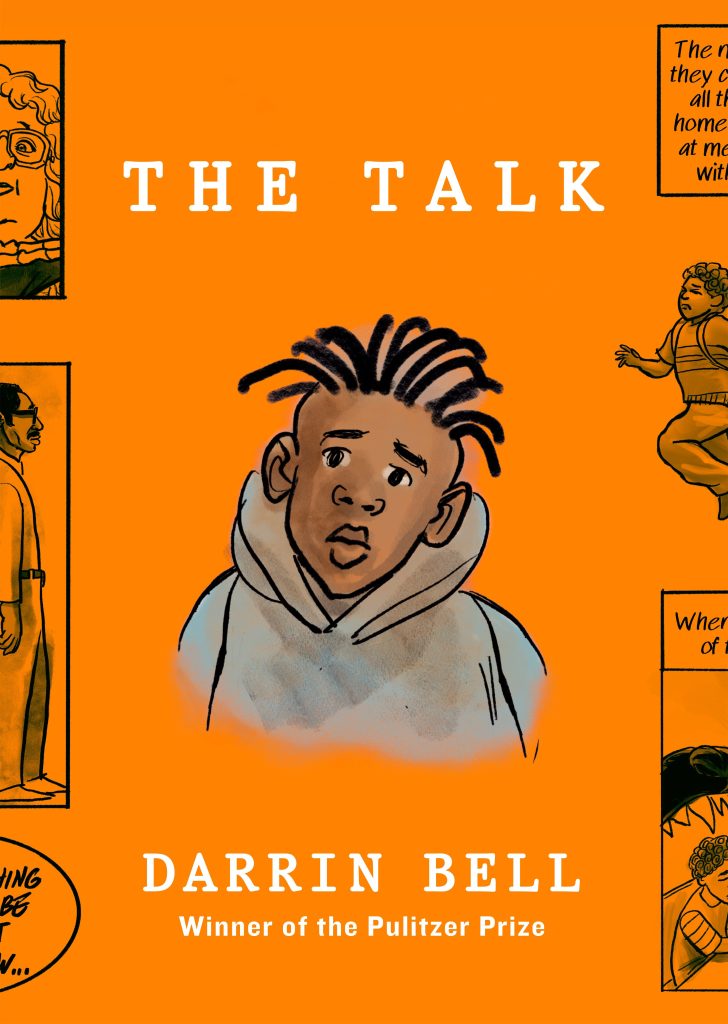By Terri Schlichenmeyer
Someone who was older than you taught you to tie your shoes.
An elder showed you around a kitchen, a car, a workplace, a classroom, and the inside of a library. A lot of what you know has thoughtfully come from someone with years – which might make you wonder, as in the new book, “The Talk” by Darrin Bell, why weren’t you taught the most important lessons of all?
It was 1981 and little Darrin Bell wanted nothing more than a squirt gun. It seemed like everyone had a squirt gun, but the one Darrin’s mother bought him was lime green, not black like a real gun. She tried to tell him why his was green, but he didn’t understand. He only knew that his mother must never find out that a policeman took his squirt gun away.
Once he was old enough, Darrin attended a school where he was one of a small handful of biracial students. White kids teased him because his dad was Black. Black kids teased him because his mom was white.
He wanted to know what to do so he asked his father, who was good at knowing all the answers but this was one time when Dad had nothing. He could only say that “a White boy’s words never made me run for my life.”

But on a sunny afternoon, as his son helped him with some gardening tools, Bell saw the past, and he saw the future. He saw that it was time for people to stop lying…
Looking for a good biography with a bit of edge? Here: hovering over every panel of artwork and action inside “The Talk,” there’s a threat. It starts at the beginning and never lets up.
Author Darrin Bell doesn’t voice that threat until several pages into his story, but it’s there and readers won’t be able to ignore it. Racism is subtle in the opening pages of his book, and it taints the innocence of play. From there, the threat increases and readers are made to squirm as Bell grows up through his art; we see his charming awkwardness and his maturing – but still, that threat. By the end, we know how Bell perceives it, too, which is one of the more powerful ways of ending a book that you’ll ever see.
This story is great for readers, especially male readers ages 16 to 30, but also for parents of any young Black child, not just boys. Give “The Talk” to an older kid. Give it to an elder.




